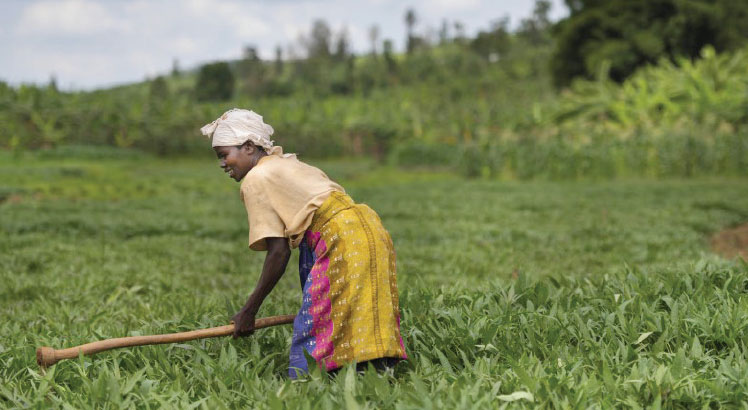Public works, Fisp under scrutiny
 Malawi government intends to conduct a comprehensive beneficial monitoring evaluation of socio-economic programmes such as Farm Input Subsidy, Public Works and the Social Cash Transfer programmes.
Malawi government intends to conduct a comprehensive beneficial monitoring evaluation of socio-economic programmes such as Farm Input Subsidy, Public Works and the Social Cash Transfer programmes.
Minister of Economic Planning and Development Atupele Muluzi hinted in an interview recently that government would want to gauge the real impact of the programmes, particularly on the rural poor who are the main beneficiaries.
For seven years now, government has been implementation the multi-billion kwacha Farm Input Subsidy Programme (Fisp) to ensure food security.
Under this programme, a million plus smallholder farmers receive coupons with which they use to buy a 50 kilogramme bag of fertiliser and other inputs at a subsidised price.
Government also implements the Public Works Programme (PWP)—whose activities entail the payment of a wage, in cash, by the State or any other after working on, among others, road—as a social safety net.
The Social Cash Transfer Programme, on the other hand, provides direct payments of cash—on average $13 (K4 160) a month—to families identified as ultra poor and labour constrained.
In the 2012/13 financial year, government indicated that it will roll out the programme in 24 districts of country with an allocation of K250 million.
But Muluzi said it is rather surprising that the economy has been growing, on average, at 7.5 percent the last six years, but a large section of Malawian is still wallowing in abject poverty.
He said government has been implementing Fisp, but most beneficiaries have not graduated from poverty as they continue to be beneficiaries of the programme year in, year out.
“We want to do a beneficial monitoring to find out what is really happening,” said Muluzi, without indicating when the exercise will begin.
He said the beneficiaries of the social programmes slide back into poverty as soon as the programmes end; hence, the need to find out the cause of the problem.
The 2010/11 Integrated Household Survey (IHS)—the most comprehensive survey that determines the extent of poverty in Malawi—released in August showed that about 25 percent of the 14 million people are ultra poor—at the very bottom of the socio-economic ladder—representing 3.42 million people being in extreme deprivation of human needs.
But the survey results showed that while poverty levels in urban areas had declined from 25.4 percent to 17.3 percent, in rural areas—where most of the people benefit from government’s social programmes—it has deteriorated from 56.6 percent to 55.9 percent.
Chancellor College economics Professor Ben Kaluwa on Thursday supported government’s intention to conduct a beneficial monitoring of the social programmes.
“We really have to find out who has been benefiting from these initiatives,” he said.
At recent Economic Recovery Programme (ERP) public dialogue in Blantyre, New Republican Party (NRP) president Gwanda Chakuamba called on government to evaluate the impact of PWP since it was established during the Malawi Congress Party (MCP) era.
Experts have called for an exit strategy of Fisp which, this year alone, has been allocated K40.6 billion, about 10 percent of the K406 billion 2012/13 budget.





